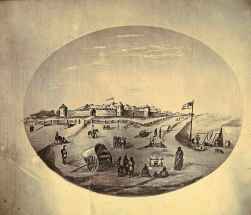Stages of recovery Local artists push past pandemic restrictions in pursuit of creative passions
Read this article for free:
or
Already have an account? Log in here »
To continue reading, please subscribe:
Monthly Digital Subscription
$0 for the first 4 weeks*
- Enjoy unlimited reading on winnipegfreepress.com
- Read the E-Edition, our digital replica newspaper
- Access News Break, our award-winning app
- Play interactive puzzles
*No charge for 4 weeks then price increases to the regular rate of $19.00 plus GST every four weeks. Offer available to new and qualified returning subscribers only. Cancel any time.
Monthly Digital Subscription
$4.75/week*
- Enjoy unlimited reading on winnipegfreepress.com
- Read the E-Edition, our digital replica newspaper
- Access News Break, our award-winning app
- Play interactive puzzles
*Billed as $19 plus GST every four weeks. Cancel any time.
To continue reading, please subscribe:
Add Free Press access to your Brandon Sun subscription for only an additional
$1 for the first 4 weeks*
*Your next subscription payment will increase by $1.00 and you will be charged $16.99 plus GST for four weeks. After four weeks, your payment will increase to $23.99 plus GST every four weeks.
Read unlimited articles for free today:
or
Already have an account? Log in here »
Hey there, time traveller!
This article was published 10/07/2020 (1978 days ago), so information in it may no longer be current.
When the COVID-19 pandemic hit in the middle of March, the world seemed to stop. That sensation was especially sharp for people who make their living through live performance.
For three local performing artists — actor Cherissa Richards, dancer Anastasia Evsigneeva and musician Ila Barker — the sudden and indefinite disappearance of their career opportunities left all of them in shock and brimming with questions.
When your career and your passion is cancelled indefinitely, what do you do? What are your next steps? Do you forge ahead on the same path, or move forward in a different direction?
It has been an uncertain journey carving out a new sense of normal for all the artists.
ILA BARKER, musician
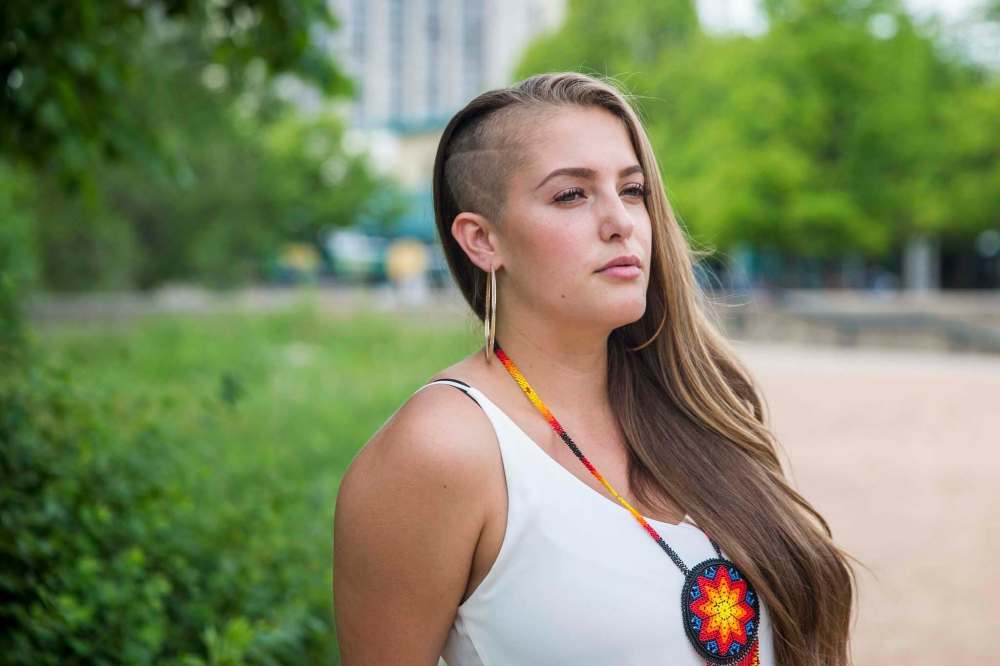
Ila Barker had only just embarked on a full-time career as a solo musician when the COVID-19 pandemic struck.
The 25-year-old singer-songwriter was teaching songwriting and music production at a high school in Mistissini, Que., when, two weeks into the process, the school shut down.
Barker had to make the difficult decision of returning to Winnipeg, where she is currently living back at home with her mom and two younger brothers.
“I was heartbroken to leave. There was no closure. I never got to say goodbye to the kids. But it was the right choice to come home,” Barker says. “And it’s been brilliant being around family.”
The first thing Barker did when she got home was sleep. She was sad to leave her students, but grateful for being given time to rest.
“I think a lot of us felt guilt as artists,” she says. “I felt guilt that I wasn’t doing more. But I really just stopped and slowed down and laid in bed all day and watched Netflix and chilled out and ate way too much food that my mom cooked me.”

The break was just what she needed. Eventually, “I kind of looked at myself and thought, this is not how we win a Grammy.”
These days, Barker is keeping busy in her new home studio, complete with upgraded tools for better livestreaming of her workshop series, Air Sessions. And she’s started to get into beadwork, a tradition in many Indigenous communities.
Barker, who is of mixed Ojibwa and settler descent, has always been interested in beadwork but started learning it herself five years ago while running a booth at the Manito Ahbee Festival.
“A local Métis woman taught me how to do a two-needle stitch,” says Barker, whose family is from Berens River in Treaty 5 territory. “She’d always have beadwork with her and since there were times when it was very slow, she taught me how to bead.”
Of course, she’s also been working on music. The singer has been learning more about music production and is starting to expand outside her folk-soul roots and into trap and hip hop.
Her new song, Resilient, which she hopes to have released by the end of summer, is a hip-hop trap beat song created in collaboration with CJAY GRiZ and co-produced by Boogey the Beat.
“That’ll be a step out of my comfort zone, for sure, style-wise.”
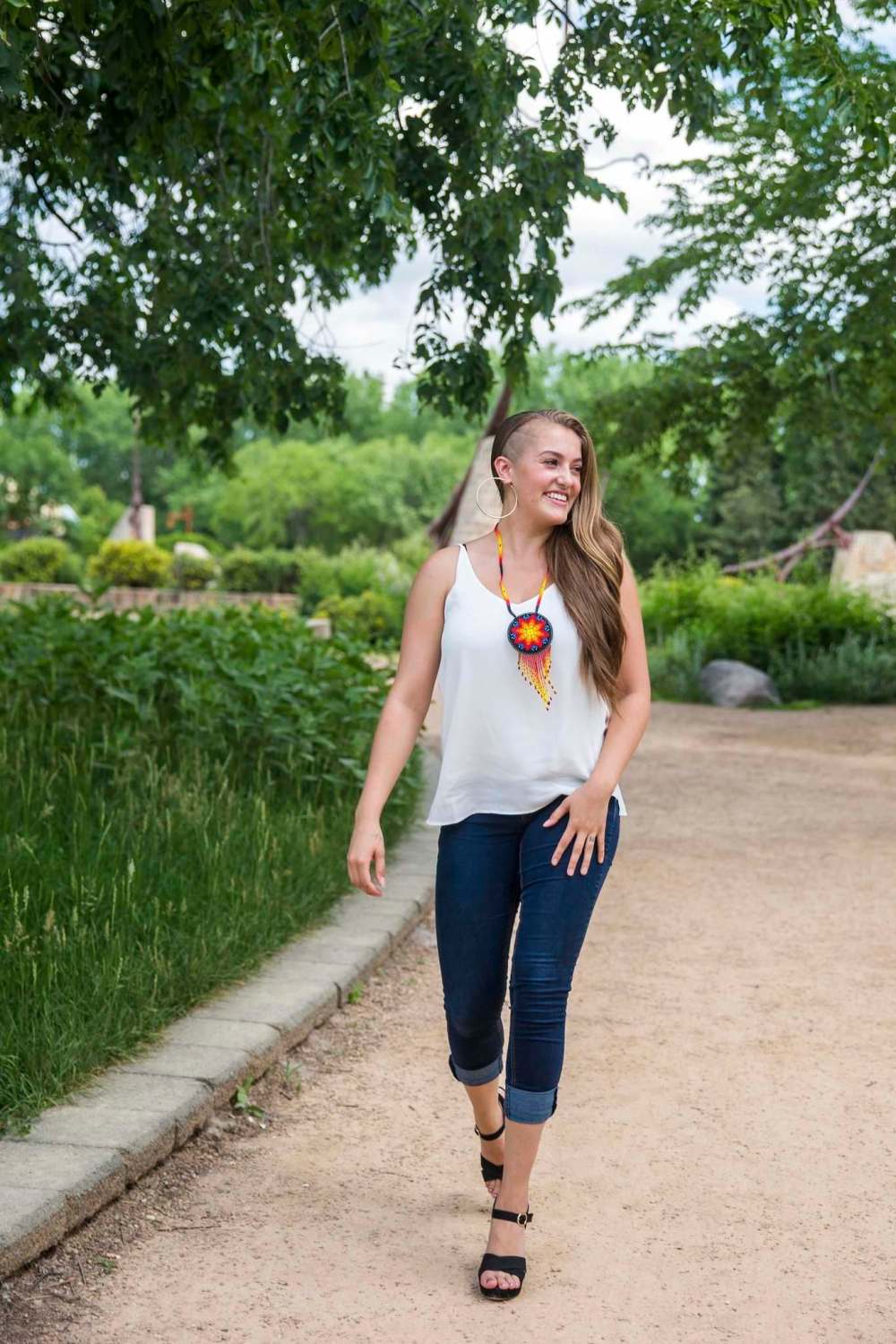
Barker says she comes from a long line of artists, thanks to her Anishinaabe ancestors. She notes that she has some painters in her family, and her sister, Emily, is a dancer — but she’s the only one in the family focused on music.
“We grew up on a farm and we were home-schooled,” she says. “We had so many hours just playing. We were super creative. I think that’s where a lot of our artistic abilities come from.”
Though she’s currently based in the city, the pandemic has had her dreaming more and more about returning to the country.
“I like being close to the land. That is part of my heritage. It’s super healing and grounding for me to have nature around.”
CHERISSA RICHARDS, actor
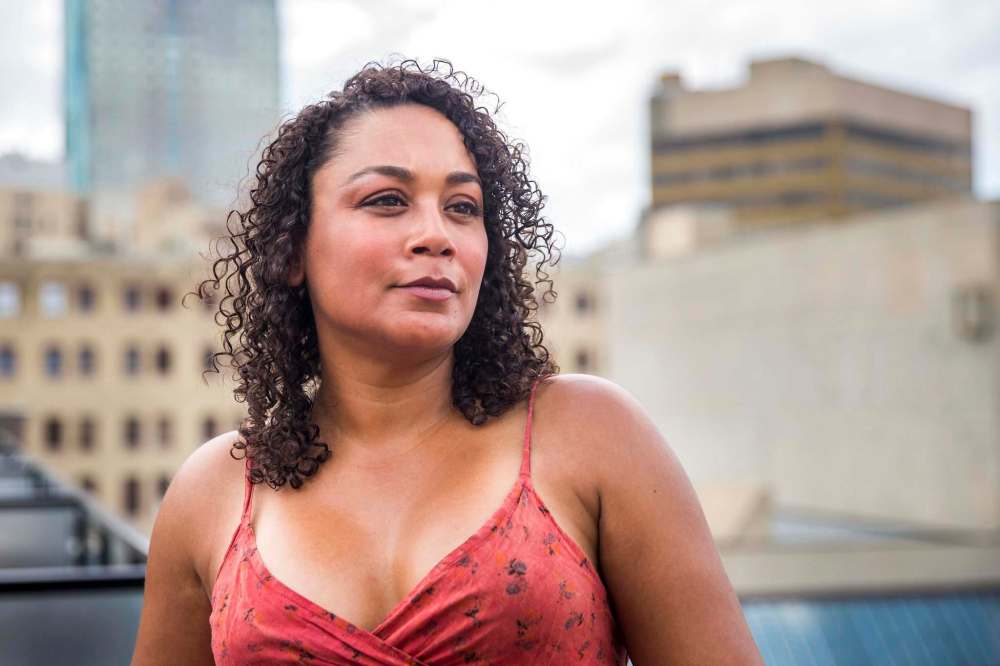
Cherissa Richards was living the dream as one of the directors in the prestigious Michael Langham Workshop for Classical Direction at the Stratford Festival in Stratford, Ont., when she was suddenly sent home just a few days before opening night.
Back home in Winnipeg, she kept herself busy with Netflix and wine as the theatre world went dark.
“Once I got out of that funk, I started getting a little bit more creative,” says Richards.
She pitched in to help her friend, actor E.B. Smith, who was teaching an online class on blues pentameter in August Wilson’s 1985 play Fences, about the experience of a Black family in Pittsburgh.
Things were starting to look up for Richards when, on May 25, George Floyd was killed by a police officer in Minneapolis. The news, and the subsequent social action that has continued to take place, hit the class hard.
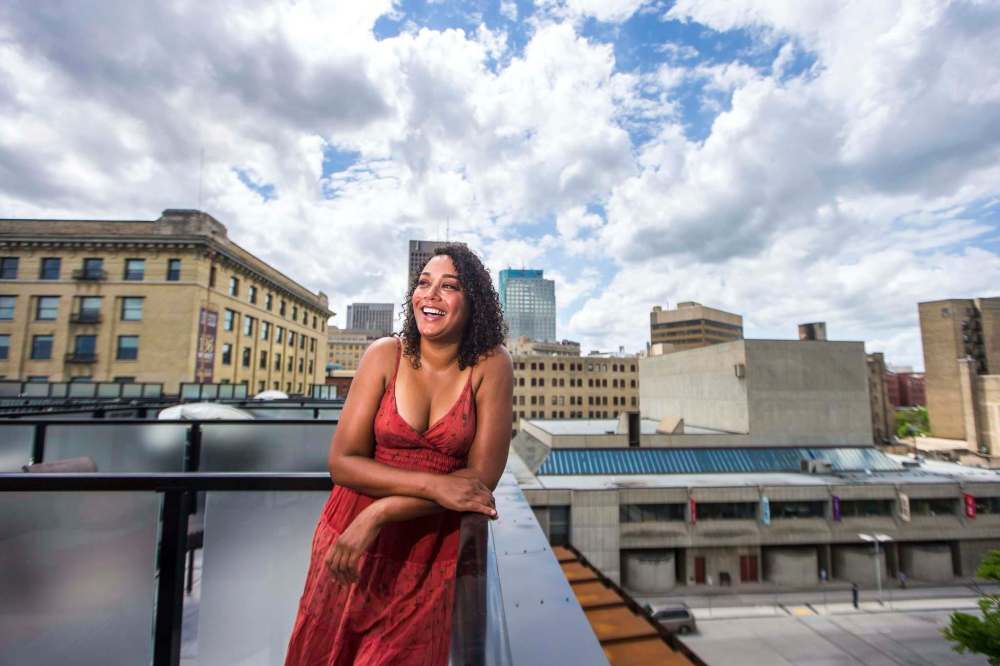
“It was incredible to work through your pain, anger, frustration and sadness as a Black person through art by one of the most incredible Black playwrights of our time with fellow Black artists,” Richards says. “There was a lot of communion that happened. I forgot how beautiful it was to work with people from my culture, because it’s so rare that we get to do that.”
“It really fuelled me to be an active participant in what is going on today.”
Richards refers to the recent calls for equity and accountability in the theatre and film industries that have come forth in the time since Floyd’s death. She has first-hand experience of working as a Black actor in institutions under primarily white leadership and is committed to generating change and staying at the top of her own artistic game.
“I try to hit all the notes so that, as a Black artist, when I go into these white institutions, nobody can say I’m not trained enough,” Richards says. “We have to arm ourselves to not give them any choice but to hire us.”
ANASTASIA EVSIGNEEVA, dancer
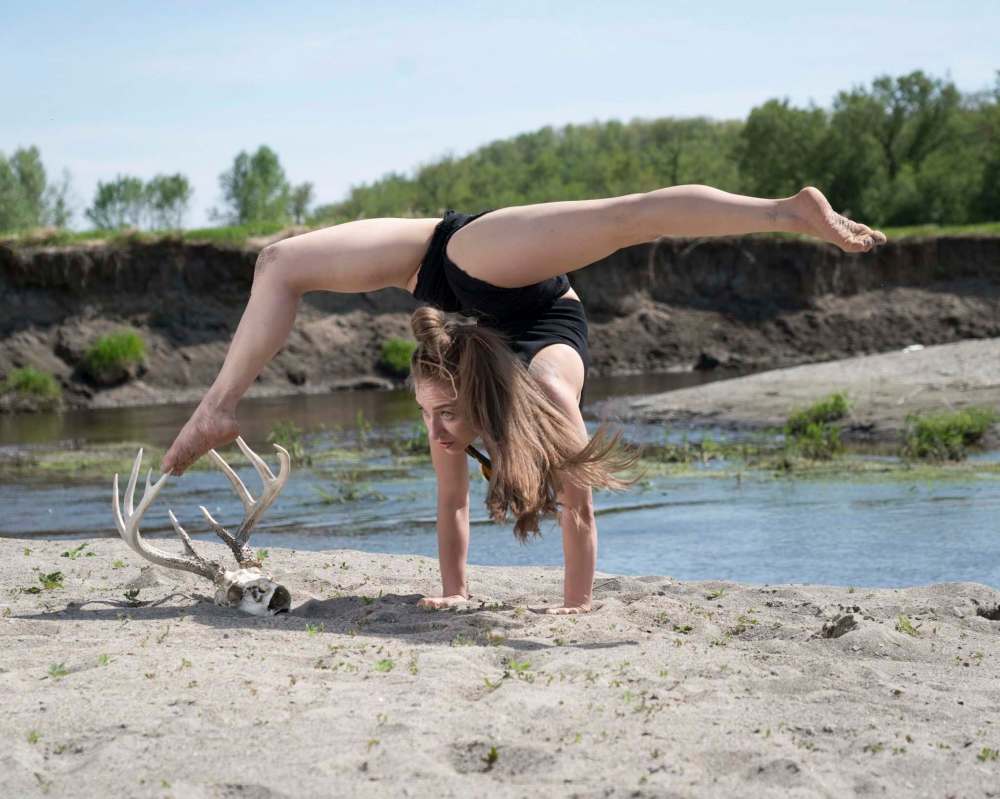
Anastasia Evsigneeva loves staying active, so when the COVID-19 pandemic forced her to stay at home and do nothing, she was not OK with that.
“I didn’t want to stop,” says the contemporary dancer and circus artist. “Even in isolation I worked on some projects.”
The cancellation of performance opportunities and termination of her work as a dance teacher left her with a hefty chunk of time and she was determined not to waste a minute of it, even though she found isolation to be very difficult.
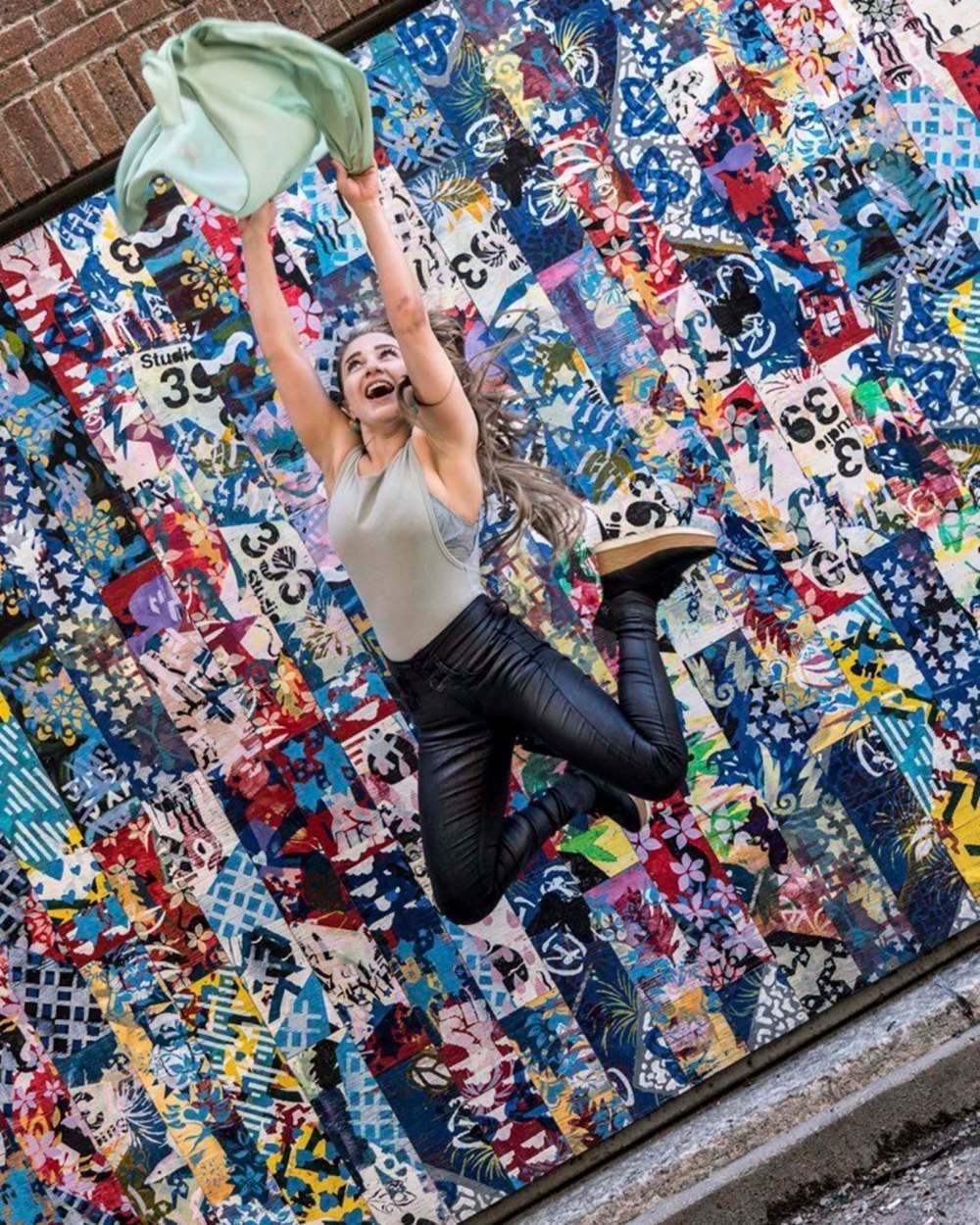
“I honestly had some trouble,” she says. “Some days I felt very motivated and energetic, but some days were very low energy. Sometimes it felt like, what’s the point of doing this?”
A few months later, Evsigneeva appears to have re-discovered her passion for her craft. She performed from home in an online event for Edmonton’s Mile Zero Dance on International Dance Day on April 29 and is now working on a short dance film based on a duet she created with her best friend and fellow dancer Anna Protsiou called Tangled.
“The duet is about two people being very close and being connected through their hair, the hair being one stream of consciousness, like energy between them,” she says. “It shows how people deal with close relationships and how that can be very mothering and loving and a good relationship, and at the same time how it can be very suffocating and limited.
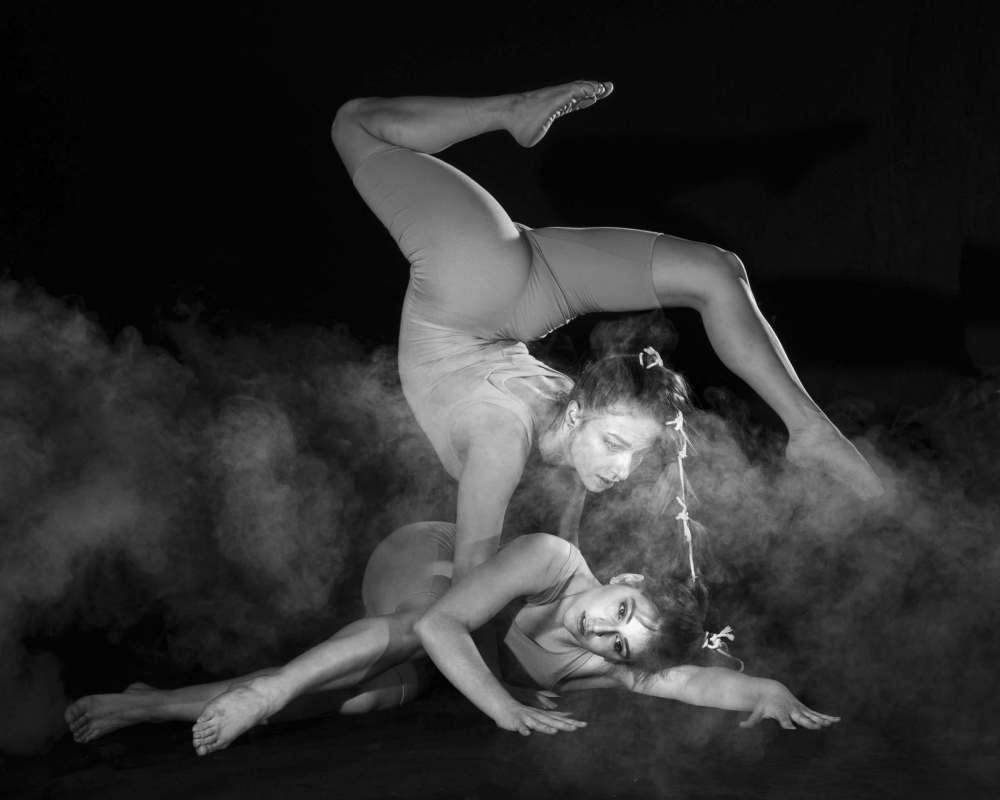
“In the pandemic it kind of became even more relevant to what’s going on, because so many people got stuck in their houses.”
She’s been running a Kickstarter campaign to fund the film, with a link available on her Instagram (@anastasia_evsigneeva), and even found the time to create her own dance company, Arty Roots.
“I hope it will be a small start for a big journey.”
frances.koncan@freepress.mb.ca
Twitter: @franceskoncan

Frances Koncan (she/her) is a writer, theatre director, and failed musician of mixed Anishinaabe and Slovene descent. Originally from Couchiching First Nation, she is now based in Treaty 1 Territory right here in Winnipeg, Manitoba.
Our newsroom depends on a growing audience of readers to power our journalism. If you are not a paid reader, please consider becoming a subscriber.
Our newsroom depends on its audience of readers to power our journalism. Thank you for your support.


